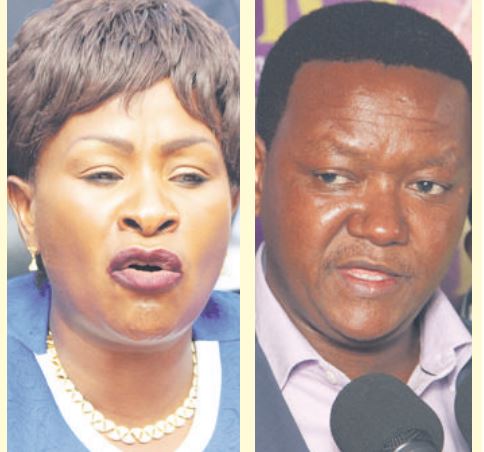×
The Standard e-Paper
Fearless, Trusted News

As the curtains open on the battle between the Deputy Chief Justice and the Director of Public Prosecutions, another battle is shaping up in the corridors of the Supreme Court.
Governor Alfred Mutua was declared by the Independent Electoral and Boundaries Commission (IEBC) as the winner of the Machakos governor election.